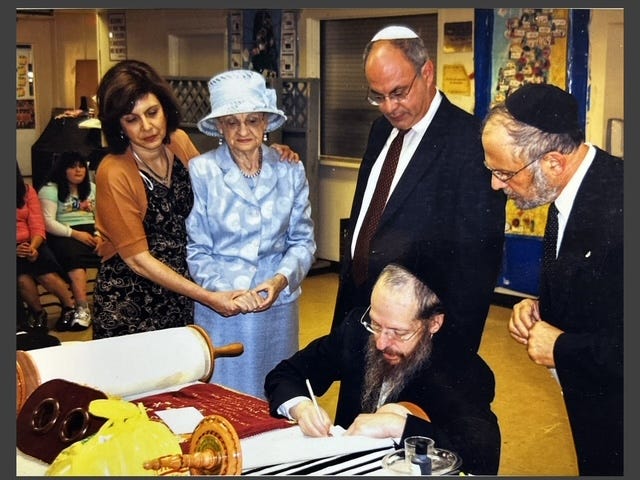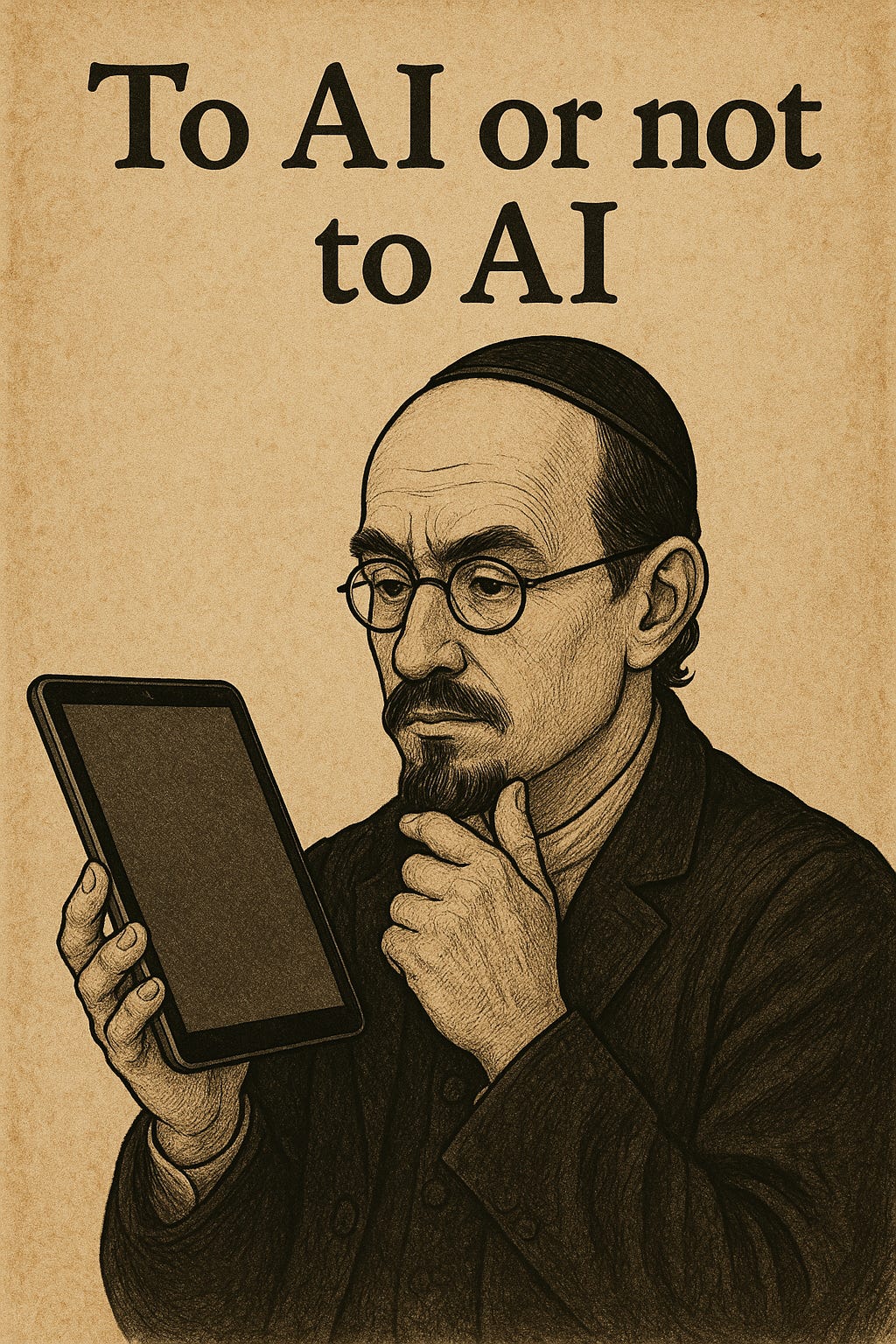Have you ever participated or attended a Torah Dedication? The atmosphere is electric. The room is full of people beaming with excitement. A brand-new Torah, a Torah that took over a year to complete by hand, is about to be dedicated.
In the middle of the room sits the scribe, the Sofer Stam,1 who has dedicated his entire life as well as this entire time, using his quill and ink to apply the letters of the Torah dutifully on leather parchment. A job that requires an intense ritual of daily prayers, and deep concentration (kavanah2).
To the side sits the person who dedicated the Torah, and those who were selected with the great honor to "assist" the Sofer Stam, in completing writing the last letters of the Torah, so the dedication and dancing, and celebration could begin.
A Torah Dedication is a cathartic experience. It is an experience that connects a person to the here and now, as well as to that person's tribal past when the Torah was offered to the Jewish people on Mount Sinai. The scribe, with his ancient art, is the bridge to the past and present.
I was a witness to many Torah Dedications, as well as a participant to a Dedication in 2008, when my Mother dedicated a Torah to the Young Israel of West Hempstead in memory of her husband, my Father.

Now fast forward to the present day. Same scenario with one exception. Instead of a human scribe, a robotic scribe3 is set in the middle of the room, ready to complete the Torah at the push of the off/on button.
Will that scene exude the same sense of excitement? Will the attendees and participations feel a connection to the past?
Let's take it even a step further. Just about every week I write an article on Substack for my subscribers and readers. It is a time-consuming task. After much pondering as to what to write and how to convey my message, a first copy is drafted. That copy is aside for at least twenty for hours, although sometimes it could be weeks, months, or even years for me to return to it. Then I work on a second and third draft. I want to get the language, tone, and emotion just right.
Guess what? I do not have to do that anymore. There is AI. All I have to do is submit my initial draft to AI, and immediately, literally less than one second, AI edits and puts out a polished copy. In fact, over time, AI has adopted my writing style.
AI is with us today. It has seeped into our everyday lives,
As a blogger, it would be very tempting for me to use AI. To be clear, I do not post any of AI's corrected articles on my Substack. I felt not only would that be cheating, but I would lose my voice, my neshama4, my kavanah. I would be cheating my many readers and subscribers.
We already lost too much as a result of technology. There was a time when I knew hundreds of business and personal phone numbers. I, and so many of you, were walking rolodexes. Now, I do not even know my wife's or son's phone number. I have to check speed dial.
There was also a time when I had a sense of direction, and when I did not know my location, I had a road map. Today, just to drive to the other side of town, the GPS is turned on. Without the knowledge of using maps, we not only lost a sense of perspective but, metaphorically, we do not know where we are or where we stand.
It took me nearly fifty years to perfect my writing skills. I refuse to lose that to AI. I would be losing my voice.
In time, AI may develop a conscience. It may even show the right intention. kavannah, to write a perfect Torah. My fear is that we will eventually lose ourselves, our individuality, our neshama, our humanity. That is too dear of a price to pay.
A Sofer Stam a Jewish scribe who specializes in writing religious texts according to Jewish law such as, phylacteries (T’filln), Mezuzahs, and Torahs.
"Kavanah" (כַּוָּנָה) is a Hebrew word meaning intention, direction, or purpose, often associated with focused concentration and sincerity in Jewish prayer and other religious practices.
Robotic Sofers made the headlines in 2014. Berlin's Jewish Museum introduced the first Torah writing robot. Like a sofer-stam, this robotic scribe eventually was able to produce totally kosher torahs: using a quill and ink, and writing on real leather parchment.





No to AI for writers